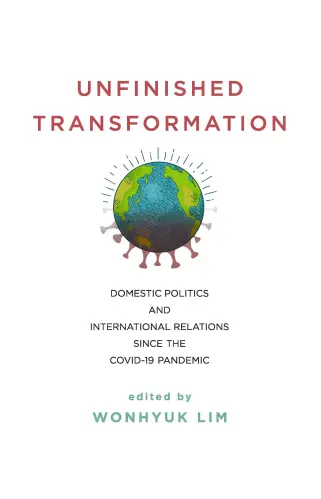This post is being updated as new analyses and commentary from Brookings experts are published. Last updated: April 24.
Donald Trump’s nominees to cabinet and cabinet-level posts in his new administration have been appearing before Senate committees in recent weeks. Additional hearings are expected this week and perhaps after. Brookings experts have been offering their analyses of the nominees and the policy issues they will face in their new jobs, should they be confirmed by the full Senate. Although many of the committee hearings for these nominees have already occurred, the issues raised by our experts point to the policy challenges and opportunities the Trump administration will face. To read expert policy ideas for the new administration, see “Brookings Big Ideas for America.”
Agriculture – Sonny Perdue: CONFIRMED
David Wolfe, a professor of plant and soil ecology at Cornell University, writing for the FixGov blog, says that Perdue “comes with experience appropriate to the position” and that he “will bring a unique perspective to the table, one that reflects views on international trade and immigration that could temper and provide important nuance to policies pushed by the Trump White House.”
Commerce – Wilbur Ross: CONFIRMED
Camron Kerry, a visiting fellow and former acting secretary of commerce, observed that “Ross evidently has deep experience with China, Korea, and Japan and is a sophisticated global player with experience in operating businesses and manufacturing as well as investing. His nomination nevertheless faces some important questions …”
Defense – James Mattis: CONFIRMED
Brookings President Strobe Talbott, writing about the hearings of both Rex Tillerson (State) and James Mattis, says the Trump administration faces a “welter of challenges” on its first day in office: “the simultaneous unraveling of the U.S.-led world order, loss of confidence among our allies; assertiveness of competing great powers; the dissolution of entire states; and the rise of barbarism, authoritarianism, and corrosive nationalism.”
Also, listen to Senior Fellow Michael O’Hanlon’s podcast episode about the foreign policy and national security nominees in the Trump transition.
Education – Betsy DeVos: CONFIRMED
Elizabeth Mann and John Valant, both fellows in the Brown Center on Education Policy, posed five “substantive policy questions” that “would help the public better understand how a DeVos administration at the Department of Education could impact the nation’s schools.”
Valant and Senior Fellow Michael Hansen, director of the Brown Center, explain the difference between proficiency and growth, a point of contention between DeVos and Senator Al Franken during her hearing. “There is growing consensus in the education research community,” they write, “that growth measures are generally more appropriate than proficiency measures for evaluating school performance.
Energy – Rick Perry: CONFIRMED
“Let’s hope that the coming hearings create a serious context for Rick Perry to draw on his record and that he proves capable of outlining a convincing vision for the next generation of American energy policy,” Nonresident Senior Fellow Barry Rabe writes. “Unlike many other Trump nominees, he has a record to defend and an opportunity to demonstrate that he is capable of more than memorizing the names of three agencies.”
Environmental Protection Agency – Scott Pruitt: CONFIRMED
Noting that average miles per gallon for U.S. vehicles has stalled, Nonresident Senior Fellow Timmons Roberts says that “this is a disaster in progress, and Pruitt should be asked about how he plans to move our nation quickly off fossil fuels.”
Health and Human Services – Tom Price: CONFIRMED
In a piece that explains why housing and health “are deeply intertwined,” Senior Fellow Richard Reeves and Visiting Fellow Dayna Bowen Matthew ask HHS Secretary-nominee Price “not to lose sight of the distinction between health and health care. Most of what we call ‘health care’ is of course ‘sickness care.’ Reeves and Matthew add that “Compared to other nations, the U.S. is out of balance in terms of relative spending on social care versus health care and our lagging health outcomes are the result.”
Homeland Security – John Kelly: CONFIRMED
Elaine Kamarck, senior fellow and founding director of the Center for Effective Public Management, and Senior Fellow John Hudak write that “Kelly is one of Trump’s more popular appointments. He has the background, ability, and prestige to be a successful Homeland Security chief.” However, Kamarck and Hudak review the management challenges that a Secretary Kelly will face leading the sprawling agency, and explain why Kelly “will find himself in the eye of the storm on both sides of the aisle.”
Housing and Urban Development – Ben Carson: CONFIRMED
In a piece that explains why housing and health “are deeply intertwined,” Senior Fellow Richard Reeves and Visiting Fellow Dayna Bowen Matthew write that “Segregation is a social determinant of health. Here HUD has a vital role to play.” Addressing HUD Secretary-nominee Carson: “We respectfully would urge you to see the push for fair housing not as “social engineering,” but actually as an attack on the social engineering of exclusionary zoning.”
Also, Amy Liu–vice president and director of the Metropolitan Policy Program–presents three issues that a Secretary Carson would face “as he forges a new federal approach to helping lift families out of poverty,” and observes that he “would likely use his platform as HUD secretary to advance an agenda that reflects his unique life journey from urban poverty to self-sufficiency, taking the lead on Trump’s promise to ‘fix the inner cities.’”
Justice (Attorney General) – Jeff Sessions: CONFIRMED
John Hudak observes that “many people fail to understand how comprehensive the jurisdiction of the Department of Justice is and as such, how much power the Attorney General wields,” including overseeing the FBI, ATF, DEA, the Solicitor General, and federal prosecutors, and enforcing voting rights and civil rights. “There is no question,” Hudak says, “that Sessions will use that position to enact dramatic changes to public policy and law enforcement in this nation.”
Senior Fellow Tom Mann, reflecting on Jeff Sessions as attorney general, said that “No appointment will be more crucial to the workings of the Trump administration and to the character of American democracy during his time as president.”
Office of Management and Budget – Mick Mulvaney: CONFIRMED
Governance Studies Fellow Molly Reynolds says that Rep. Mulvaney’s budget reputation as a member of Congress “has involved advancing his ideological priorities in a … blunter, less detail-oriented way” than he would face as director of OMB. Reynolds notes that he will “have to focus more heavily on the details of government spending, but he’ll also have to adjust to the fact that the politics of some budgetary issues are different depending on where one sits,” such as the upcoming debt ceiling.
As Mulvaney’s nomination is being considered, Elaine Kamarck avers that “the question is whether or not management issues in addition to budget issues will be front and center in a way that they have not been since 1993 when President Bill Clinton took office promising to ‘reinvent government.’” She details three ways to approach reform.
State – Rex Tillerson: CONFIRMED
Strobe Talbott called the recent confirmation hearing of Secretary of State-designate Tillerson “somewhat reassuring,” but that Tillerson “equivocated ominously” in his answer on whether Russia will remain under sanctions for its actions in Ukraine. “If the Trump administration removes sanctions while Russia is still controlling territory and undermining the Ukrainian state,” Talbott writes, “it will be a deal in which Putin is the sole winner.”
Also, Senior Fellows Mireya Solís and Richard Bush commented on Asian trade and alliance issues that arose in Mr. Tillerson’s hearing. “How will the tug of war between Trump’s trade circle (with a strong economic nationalist bent) and the broader economic-diplomatic team (with more favorable views towards internationalism) play out?” Solís asked. Bush, director of the Center for East Asia Policy Studies, said that Tillerson “did not completely remove the doubts that Candidate Trump created in the minds of our Asian allies during the campaign.”
Associate Fellow Jessica Brandt offered four questions to Mr. Tillerson on how he would handle the global refugee challenge, driven largely by the conflict in Syria.
Also, read Talbott’s piece on the global dangers that the new Trump administration will face.
Transportation – Elaine Chao: CONFIRMED
Adie Tomer, a fellow in Metropolitan Policy, observes that “major currents shaping American governance and prosperity—shifting public finance, rapid technological progress, a transforming labor market, and climate change—are affecting the transportation sector. These currents present Chao and her team with not only enormous opportunities to shape the future of American mobility and prosperity, but also considerable risks of policy failure.”
Treasury – Steven Mnuchin: CONFIRMED
“Explaining what the president actually meant likely will be one of Mr. Mnuchin’s toughest jobs,” says Senior Fellow David Wessel, observing Mr. Trump’s penchant for market-moving tweets. “And he’ll also need to have the spine to say ‘no’ to the president when necessary—whether to shield the IRS from meddling or to talk the president out of a truly unwise economic policy that Trump’s political advisers favor.”
Veterans Affairs – David Shulkin: CONFIRMED
Colonel Joel “JB” Vowell, the army chief of staff’s senior fellow at Brookings and a 25-year active duty infantry officer, offers four ways the new secretary can meet veterans’ health care needs and expectations. “Veterans deserve world-class care in return for their investments in America’s future,” Col. Vowell says.
The Brookings Institution is committed to quality, independence, and impact.
We are supported by a diverse array of funders. In line with our values and policies, each Brookings publication represents the sole views of its author(s).





Commentary
What Brookings experts are saying about the confirmation of Donald Trump’s nominees
January 19, 2017